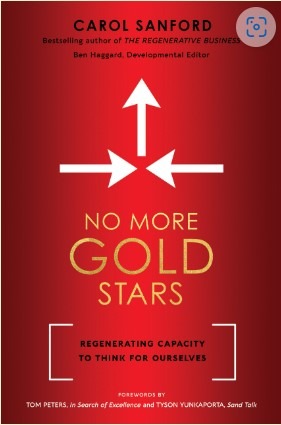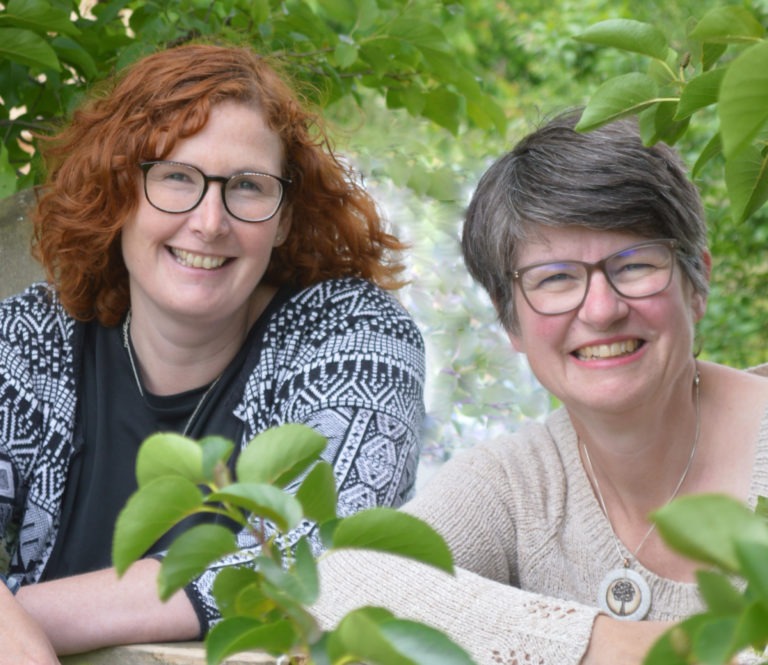
Rooted Leadership talk at Disrupt HR
Want to hear regenerative leadership explained in 5 minutes? Here’s a video of me speaking at Disrupt HR event in Nottingham. If you’d like to
Wilding. The return of nature to a British farm, by Isabella Tree.
Despite never having visited Isabella’s Knepp estate in Sussex I already know that I will feel at home – with the diversity of species, of trees, plants, scrub, ‘weeds’, birds, insects, mammals, amphibians and reptiles, not to mention the fertile soil, fungi and micro-organisms. In other words the abundance that is created, or moves in, when we humans allow it to.
Isabella writes beautifully and honestly about the difficulties of taking on such a project, borne initially out of their inability to turn a profit in conventional farming due to the marginal quality of their land. Encounters with experts, both accidentally, and sought out from around the world, lead them down a new path, with an emphasis on wilding/regeneration rather than conservation.
Of interest to me was her exploration of what we mean by conservation, ‘wild’, nature and ‘natural’ habitats. She points out (as does George Monbiot in his excellent book Feral) that no areas of the UK are untouched by humans, and that to ‘conserve’ a location is to take an arbitrary point in time and attempt to go back to how things were (often this baseline shifts with each generation trying to go back to a time in their own childhood). Isabella tells of one particular pot of funding that they turned down because it would have created artificial habitats that would have been unsustainable in the long term without extensive human input.
Their preferred approach, rewilding, instead takes a forward-looking view, allowing nature to do what it does best – create abundance, diversity and new niches and habitats. They appear to utilise knowledge and research from the past as just one input to inform the future, rather than being an end in itself. Key species are reintroduced, where they can contribute to the rebalancing act, but with the full knowledge that we are living in the 21st Century and that humans have their part in the landscape too. At Knepp these have been deer, Tamworth pigs, Exmoor ponies, and longhorn cattle – the latter 3 are substitutes for their more ancient counterparts, and are more docile when interacting with Knepp’s many visitors. The role of beavers and wolves is discussed too.
Letting nature get on with it takes courage in our overly tidy countryside, with our artificial parklands, paddocks and arable fields. This is the model of the beautiful English countryside painted on chocolate boxes. It is only now that we have over-farmed the vast majority of agricultural land, that the industrial nature of our countryside is being discussed. I felt for the couple when I read about their battle with thistles and ragwort, as these are species we encountered when we took on our overgrazed field, but I shouted hooray when I read that they had held their nerve, watch the clouds of butterflies that descended, and then witnessed these species assume their place in the natural balance of things.
I was fascinated by how Isabella and Charlie’s curiosity and open-mindedness, allowed them to truly observe what was around them, seeking out somewhat controversial and new ideas, rather than simply relying on received wisdom or even modern research. For example, the book discusses the formerly held belief that if the UK was left alone it would become climax woodland – clues from mammals and trees (in particular oak trees that like some scrubby open ground to take off) demonstrate that our island (and neighbouring continent to which we were joined until recently) had much more diverse woodland, scrub and grassland than was previously thought. The giant herbivores were responsible for ensuring a dynamic and diverse range of habitats.
Also of interest is how the couple have built a business selling their grass-fed meat, and how much carbon this method of food-production is responsible for sequestering – in my opinion we should be moving to these farming practices on a wide-spread scale with subsidies for the additional cost involved in moving/rotating/fencing the livestock to ensure each area is not over-grazed, maintaining a diversity for biodiversity and carbon-sequestration purposes. Whilst I believe that we should all be eating less meat, this method of farming, with animals grazing not only on grass, but on trees and other herbs, means that meat can remain an integral part of an ethical British diet.
Whilst permaculture is not mentioned in the book, it is clear that Knepp’s stewards operate according to key underlying principles learned by observing natural systems. Observation is the key, as is diversity, allowing nature to be ‘wild’ and not tidied, stepping back and ‘letting it go where it wants to go’, not making assumptions about what is best, allowing feedback and balancing mechanisms to come naturally into play. Being forward-looking, taking as a starting point ‘now’ rather than some arbitrary point in the past, and not making assumptions about who or what has the right to be present (humans, livestock, alien or invasive species). We have to realise that we are where we are, however bad we might think that is, so we should let nature work with what it has, and give a helping hand, rather than seeking to control or eradicate.
As the reader follows the progress throughout the book, Isabella transports us to the fields, scrub and woods, and it feels like nature breathes a sigh of relief, pauses and then goes for it, as the project progresses. The results are dramatic, giving hope that landscapes can be turned around in relatively short time periods if given the financial incentives for landowners to do so.
I can’t recommend this book highly enough – it has everything. A great story, courageous and knowledgeable central characters, practical information and extensive research, and a message of hope, both for humans and for other living beings with whom we share our planet. I’m sure this book will inspire many more rewilding projects. It’s already making me think differently about our own land. I’m not known for being a tidy landowner, but I’m definitely going to leave the strimmer in the shed more often and not worry what other people think. I may even put up a sign at the gate saying ‘rewilding in progress’!
Sarah Spencer
5 June 2019
(About me: I am the author of Think like a Tree: The natural principles guide to life. I live on a smallholding in south Derbyshire, and grow fruit, veg, trees and flowers with my family. I teach courses in nature-inspired wellbeing and am passionate about helping people reconnect with nature, for the good of themselves, other people and the rest of the living world.)

Want to hear regenerative leadership explained in 5 minutes? Here’s a video of me speaking at Disrupt HR event in Nottingham. If you’d like to

In “No More Gold Stars,” Carol Sanford challenges conventional notions of achievement and success. Carol is a renowned business consultant and educator and what struck

This week has felt a little bit epic! I have found myself taking deep, exhaling breaths as I sit with the medley of feelings I have